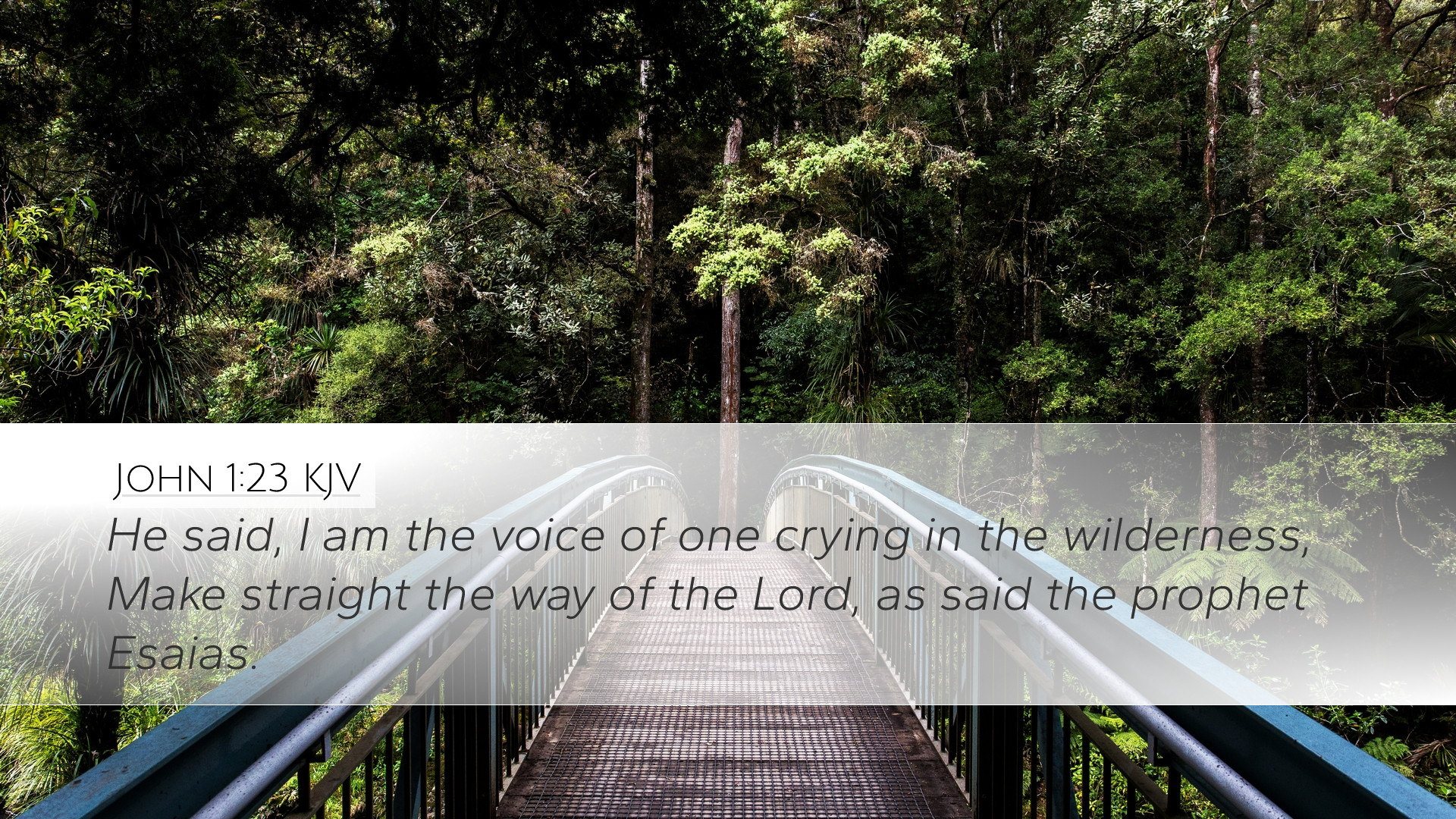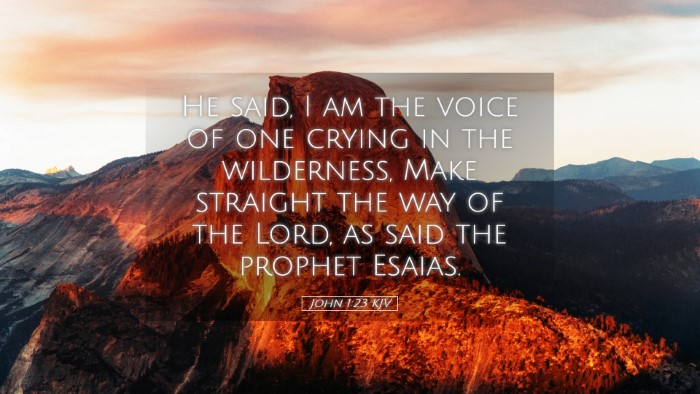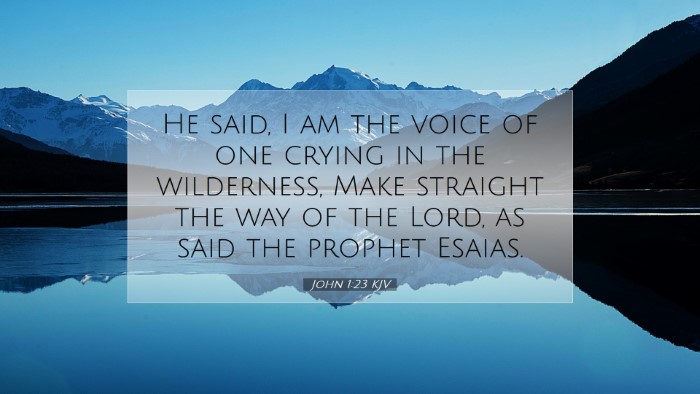Commentary on John 1:23
In this verse, John the Baptist responds to the inquiry about his identity, indicating his role as a forerunner of Christ. The context surrounding John 1:23 invites a deeper understanding not only of John's mission but also of the nature of witness in the Christian faith.
Contextual Overview
The Gospel of John opens with a profound prologue that emphasizes the divinity of Christ and the significance of John's ministry. As we delve into John 1:23, we find John the Baptist positioned as the prophetic voice in the wilderness, fulfilling Isaiah's prophecy regarding the one who prepares the way for the Lord.
Verse Analysis
John 1:23 (KJV): “He said, I am the voice of one crying in the wilderness, Make straight the way of the Lord, as said the prophet Isaiah.”
John the Baptist's Identity
Matthew Henry emphasizes that John the Baptist eschews any grandiose titles for himself, instead identifying purely as a “voice.” This self-description denotes humility and serves as a reminder that the messenger should not overshadow the message or the one who sends him.
“Voice” and Its Implications
Albert Barnes elaborates on the term “voice,” highlighting its transient nature. A voice is ephemeral; it must be heard and responded to while it lasts. In this way, John's ministry acts as a call to prepare hearts for the coming of Christ, accentuating the need for a responsive audience in faith.
The Wilderness as a Place of Preparation
John's proclamation in the wilderness signifies a profound spiritual truth, as noted by Adam Clarke. The wilderness, often metaphorical for trials and isolation, is also where one can encounter God away from distractions. John's ministry invites believers to find their own wilderness experiences where they can listen to God's voice.
Isaiah's Prophecy and Its Fulfillment
John’s statement reflects a direct fulfillment of Isaiah's prophecy in Isaiah 40:3. “The voice of him that crieth in the wilderness…” This connection underscores the divine orchestration of redemptive history and confirms John's role as a prophet who bridges the covenantal gap from the Old to the New Testament.
Implications for Theological Reflection
From a theological standpoint, the fulfillment of prophecy in John’s life reminds scholars that God is consistent and faithful in His promises. This reliance on prophetic truth encourages believers to trust in God's overarching plan, affirming their faith in both the written Scriptures and the living Word, Jesus Christ.
Practical Application for Believers
John’s example teaches us about the nature of witness in the world today. As established by Matthew Henry, Christians are also called to be voices in the wilderness of a chaotic world, proclaiming the need for spiritual awakening and preparation for Christ's return.
Preparation of the Heart
Just as John called for a “straightening” of the path for the Lord, pastors and theologians are reminded of the importance of preparing the hearts of believers through teaching, preaching, and personal example. This call to action requires intentional effort in discipleship and evangelism.
Conclusion: The Ongoing Relevance
As we reflect upon John 1:23, it is paramount for pastors, students, and scholars to grasp that the call to be a voice is ongoing. Each one of us has the responsibility to bear witness to Christ, to call others to repentance, and to embody the principles of love and grace that undergird the Gospel message.
This verse ultimately calls us to reflect on how we, like John the Baptist, can prepare the way for the Lord in our daily lives and communities, ensuring that our lives echo the eternal truth of God's Word.


